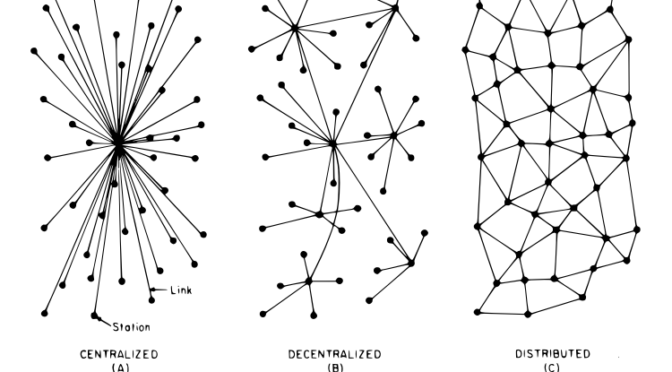Many folks online are unaware of the decentralised roots of the online world. To them, the Internet is Facebook, Twitter, Instagram, Google and the like- understandably, that’s where the focus is- the problem is, these platforms are, subtly and not so subtly, manipulating us. Internally, by constantly tweaking the interface to keep us inside the platform. And externally by marketing based off of the harvesting of our collective unconscious.
I will go into detail on what I mean by that in a future post. In this post, I would like to explore some of the alternatives…
First, there’s email- it’s been around for a long time- most people use things like Gmail, Yahoo or other corporate run services. Luckily, it hasn’t been closed off, I don’t need to have a Gmail account to send and receive email to/from someone with a Gmail account. There are many ways to get an email address- beyond the mentioned services, many Internet Service Providers provide one with their account (this is less common now). The email address I use is part of my webhosting package- where this blog is located- I pay less than $10/month for all my webhosting needs, an unlimited number of email addresses and a bunch of other stuff- it’s pretty inexpensive, but here are some free alternatives-
https://protonmail.com
https://tutanota.com
https://mailfence.com
There’s also https://riseup.net where they vet new accounts, but offer more than just email- their mandate is to empower people and groups working on liberatory social change. Beyond email there are a variety of other communication tools they offer.
The precursors of social networks have been around long before Facebook and the like, in the form of forums, newsgroups ( https://en.wikipedia.org/wiki/Usenet_newsgroup ) and chat clients (like http://www.irc.org ).
These days there is a growing list of alternatives to Facebook, Twitter, etc. The ones I’m most interested in are decentralised- they aren’t tied to a single server or company. Here’s a couple that I use-
https://diasporafoundation.org
Diaspora* is similar to Facebook, but gives you, the user, a lot more control over who sees what you share and what you see.
https://joinmastodon.org
Mastodon is similar to Twitter, but is self moderated and, again. gives the user more control over who can see what you share and what you see in your feed.
For more direct communication there’s https://about.riot.im
Based on the decentralised matrix.org network, Riot.im is based on “rooms”- you can create a room that is completely open and public or closed and encrypted- members of the room can then meet and chat at the same time, or leave messages and files for others members to see and access at any time. Roit.im has been expanding with numerous plugins that offer functions such as collaborative document editing and a whole lot more.
Riot.im, Diaspora* and Mastodon can be used in a web browser or with apps- available in mobile and desktop versions.
So that’s a start, I’ll expand on this in time.
Head image from https://openclipart.org/detail/277506/Centralized-Decentralized-and-Distributed-Networks
